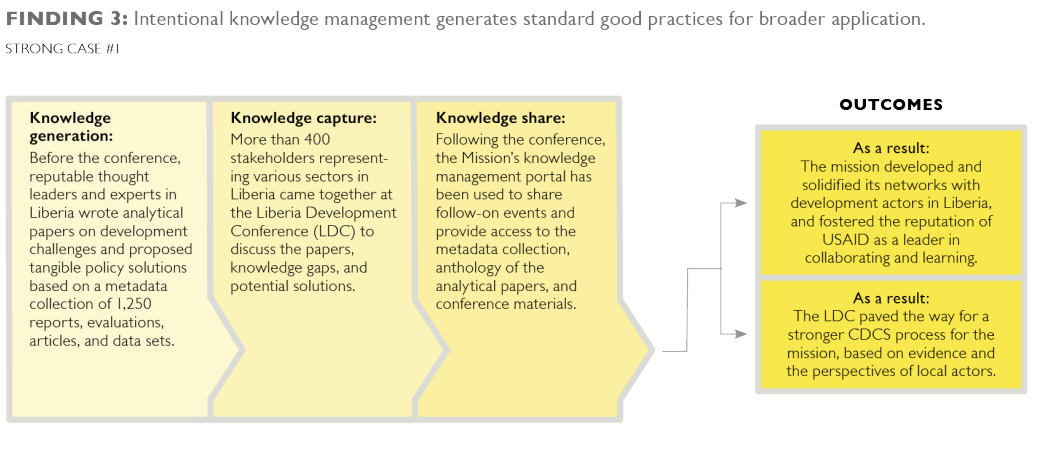A Decade of Discovery: Celebrating 10 Years of USAID’s CLA Case Competition
In 2015, when USAID held its first Collaborating, Learning and Adapting (CLA) Case Competition, the Agency was still learning how to implement CLA. Some Missions were working closely with our CLA team in Washington to innovate CLA methods, while many more were incorporating different aspects of CLA into their strategies, programs and partnerships. Others were still scratching their heads, either trying to figure out what CLA was or dubious about its necessity and skeptical about resourcing it. Certain folks in the Bureau for Policy, Planning, and Learning (now the Bureau for Planning, Learning, and Resource Management, or PLR) were among the skeptics – including the then Assistant to the Administrator. Until we ran the case competition, and gave her the winning submissions to read. I’ll never forget what she said: “Now I understand. I get it. I get why CLA is so important.”
She was not alone in finding the cases particularly helpful in clarifying the ways that strategic collaboration, continuous learning and adaptive management – when done together and with intention – can significantly improve organizational effectiveness and development impact. Ten years and 671 cases later, USAID staff, partners, and other folks continue to look to these cases to understand what CLA looks like in action and to find inspiration in their colleagues’ experience with applying CLA principles and processes. The CLA cases help people envision options they hadn’t considered, compare contexts and enabling conditions to explore the feasibility of potential program approaches, and – through the cases’ structured narratives – internalize understanding at a deeper level, quickly and in ways that stick. CLA principles can enhance other components of successful development, such as access to synthesized evidence in easily understood and applied formats, strategy grounded in local contexts, catalytic funding, effective management and monitoring, and a conducive environment.
The CLA Case Competition offers an important opportunity for USAID staff and implementing partners to share their work and lessons learned with a broad audience, and receive recognition for their contributions to expanding and evolving CLA beyond what we in Washington had envisioned. Their cases, and the fora in which they’ve shared them have given all of us a way to hear each other across geographies, sectors, and contexts, and to learn from one another in ways that can help us to advance our own programs. Development colleagues have been able to access this learning through the four Moving the Needle CLA conferences held from 2015-2019, the receptions for winners, and the poster display in the USAID lobby. Learning from the CLA Case Competition continues to be shared via the ongoing Bite-Sized Learning series which began in 2023 and the expanding case library on Learning Lab).
The growth and evolution of CLA is driven by those applying it in their own contexts, and the CLA Case Competition has been a critical enabler for that evolution. The Case Competition has also helped USAID’s PLR Bureau better understand how CLA principles and processes work in context, and how to measure its contributions. Assessing the cases each year during the judging process alerts the team to patterns that are worth exploring for what can be learned about CLA and how we can strengthen CLA guidance and support. For example, 44% of all cases submitted from 2015 to 2023 came from Africa; global health and democracy, rights, and governance cases far outpace those from other sectors; and only a few focus primarily on climate change. The cases reveal innovations in CLA practice that can be amplified and incorporated into guidance, and they help identify gaps that indicate the need for clearer messaging.
USAID’s growing database of CLA cases serves as a rich source for ongoing research. Detailed, qualitative assessments of case submissions from 2015 and 2018 helped us to understand how CLA supports greater effectiveness, generating particular insight into the broader patterns and the underlying change processes required for strong CLA. Those analyses led to the results chains that the CLA team constructed from synthesizing discrete examples (see below). They also led us to conduct two deep-dive studies of cases submitted through the competition, one in Zambia and one in Liberia, that yielded important insights into CLA’s contribution to development impact.

These efforts, which were part of our Evidence Base for CLA learning agenda, reflect another essential aspect of the value of the CLA Case Competition to USAID programs and to the ways we assess contribution and impact in the fields of knowledge management and organizational learning.
Finally, the process of managing the Case Competition is, by itself, an example of us “walking the talk” of CLA. The team in Washington that manages the competition intentionally enlists judges from among Agency leaders and others who are seeking to increase their understanding of CLA. Judges often report feeling better equipped to champion CLA – an essential element of the CLA change management strategy – following their experience assessing cases. Investing in a space to bring people together, through the Moving the Needle conferences, offered a forum for Case Competition winners to showcase their work, present models for others to consider and adapt, and reflect as a group how CLA was evolving. And the design of the CLA case library – visualized on a map and searchable by country, sector and CLA component – has put CLA cases within easy reach. In these respects, the CLA Case Competition itself has advanced our CLA efforts as much as it has described them. This is good for USAID and good for development – and worthy of celebration. Happy 10th anniversary to the CLA Case Competition! Here’s to the next 10 years!



